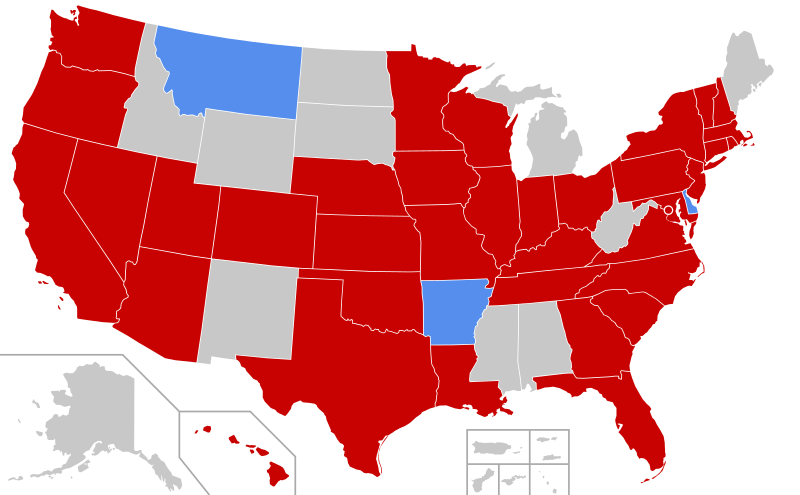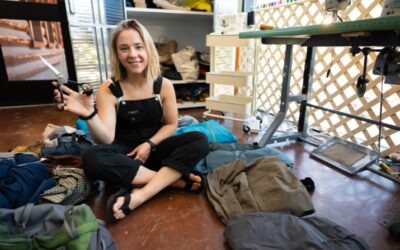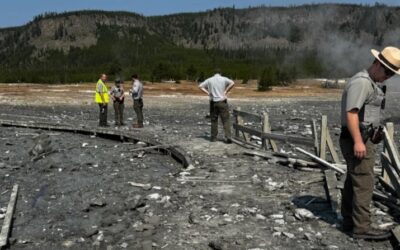While financial markets fluctuate and Italy navigates the rigamarole of shutting down an entire country, Jackson Hole remains in a preventative holding pattern until a COVID-19 patient is diagnosed locally or in Eastern Idaho.
The state of Wyoming has not yet reported a case. But local officials are urging people to prepare for the inevitable. “I have confidence in the preparedness measures that are in place, but we all need to be ready to adapt our response as this rapidly changing situation evolves,” said Natalia D. Macker, Teton County commissioner.
As spring break and other tourist pursuits unfold, and with Jackson a second home to many global citizens, the possibility of COVID-19 in the valley seems likely. Kim Deti, public information officer with the Wyoming Department of Health, said that as of yesterday five people have been tested in Wyoming, and one by the Centers for Disease Control and Prevention. All were negative. Last week, Wyoming received “hundreds of tests” to screen for the illness in-state, “which should serve our needs for quite some time,” Deti said. She also expects some private laboratories to begin testing services.
Teton County Health Department set up a hotline for up-to-date COVID-19 information: 307-732-8628. The county is requesting that anyone who has symptoms compatible with coronavirus infection call their healthcare provider before visiting the health department. To that end, St. John’s Health will introduce a direct line for people to call and discuss their symptoms with nurses and doctors, free of cost. It will be operational on Wednesday.
“It’s a paradigm change for our community,” said Karen Connelly, chief communications officer for St. John’s Health. “It’s intuitive for people to go into urgent care when they are feeling sick, but that’s exactly what we are asking people not to do.”
Connelly stressed that COVID-19 presents “the greatest danger to vulnerable populations—people who are health-compromised at our hospital and our clinic.”
“Most people who have coronavirus are not going to be severely ill, and can manage at home,” she said. The hotline will give directions for self-care or determine if people should seek medical attention. It will also address concerns for those returning from areas with high cases of the illness or people who have been in contact with a confirmed COVID-19 case. In all instances of possible COVID-19 infection, Connelly said people should take precautions to avoid infecting others.
Economy of Illness
When it comes to potential transmission of the virus, residents should keep vulnerable populations in mind. According to the CDC, the virus has an incubation period of between two to 14 days. That means good sanitary measures are important for everyone. The twice-happy-birthday hand-washing regimen and cleaning all those surfaces require time and vigilance. And for those with symptoms, being sick and self-isolating means missing work.
President Trump has discussed the potential for a stimulus package that would compensate hourly wage earners for sick days, but he has not provided any specifics for such a plan.
For local employees, Anna Olson, president of the Jackson Hole Chamber of Commerce, says she has not heard a general discussion among valley businesses about employee compensation issues. Everyone is playing it day-by-day, she said. “I have spoken with a couple of business owners this morning asking employees to follow common sense.” This means staying home if you feel sick and seeking medical attention if necessary.
While sick leave compensation remains unclear, for the uninsured, “the cost of medical care is not something that people should be concerned about,” Connelly said. Given St. John’s Health is a community hospital, everyone will be taken care of, she said.
“It’s intuitive for people to go into urgent care when they are feeling sick but that’s exactly what we are asking people not to do.”
– Karen Connelly, St. John’s Health
As for business overall, Olson said it is too early to tell how tourism numbers might be affected here. The chamber, which works closely with the Wyoming Department of Tourism and the U.S. Travel Association, has seen “overall no dramatic change to bookings,” she said. And thus far, local community events are still on the calendar.
Who Gets Tested?
For St. John’s Health and other local providers, the protocol for COVID-19 testing changed last week. The Wyoming Department of Health lists certain criteria to determine who should get tested. They include people who have traveled internationally, had contact with a laboratory-confirmed COVID-19 patient or those hospitalized with severe illness. Patients must also exhibit coronavirus symptoms (fever, cough, shortness of breath) and test negative for the flu, unless they have been in direct contact with another COVID-19 infected person. In that case, a sign of fever or lower respiratory distress would be enough to trigger testing.
Travelers, Take Note
Accordingly, the CDC is now recommending travelers returning from high-risk areas outside the U.S. to isolate themselves from others. Jodie Pond, director of the Teton County Health Department, emphasized this measure “especially given our large population of people who travel for spring break.” People who travel to countries that have reported thousands of cases, such as Italy or South Korea, should self-isolate for two weeks, Pond said. This means staying at home, disinfecting surfaces and your hands frequently, and limiting contact with others including people with whom you share living space. And that includes pets. Last week, a pomeranian in Hong Kong contracted a weak iteration of the virus in a likely case of human-to-animal transmission.
The CDC is offering no official comment on travel to areas of relatively high infection density within the United States, like Washington state or New York, other than the guidelines for individual hygiene precautions.
At the Jackson Hole Airport, director Jim Elwood said changes in cleaning procedures include “increased disinfecting with hospital-grade disinfectant sprayers” and a cadre of anti-bacterial lotion dispensers for traveller and employee use. He has seen no changes to local flight schedules.
Recent health advisories urge high-risk people to avoid flights of five hours or more, and cruises, Pond said.
Looking Out for the Elderly
The state also now recommends that senior centers, nursing homes, and assisted living facilities screen visitors and limit unnecessary traffic. People wishing to see friends and relatives at St. John’s Living Center should be extremely thoughtful before visiting, Connelly said. “Unnecessary visits are unnecessary,” she said. St. John’s is in the process of enacting formalized visiting restrictions.
At the Senior Center of Jackson Hole, director Becky Zaist said as long as folks are healthy, people are welcome to visit. The center is maintaining aggressive cleaning protocols, and hand sanitizer is readily available. “Luckily we stocked up a couple of weeks ago,” Zaist said, referring to the panic buying that has resulted in shortages of hand soap and hand sanitizer. (Smith’s, for one, did have hand soap and sanitizer in stock this week.) Still, the senior center has sent out guidelines for volunteers and employees. “People have to be responsible. If they have symptoms, if they have a fever, they have to stay home,” Zaist said. These precautions, she said, are used in cold and flu season too. And seniors should let someone know immediately if they are feeling unwell.
Caveat to Youth Resilience
Children without underlying conditions seem surprisingly resilient to the virus. “On the one hand that’s good news, but they can be carriers to not only family but other older adults,” said Charlotte Reynolds of the Teton County School District. Reynolds said the school district has enacted aggressive cleaning measures with hospital-grade disinfectants. Meanwhile, teachers are placing an emphasis on hand-washing and other common-sense measures for students. Another common-sense measure school officials have for families: Children who are ill should stay home and not return to school until 24 hours after they are fever-free, Reynolds said.
The schools will have more information on how to proceed in the event of a local case of COVID-19 after a board meeting tonight. That’s when school officials will determine “a benchmark for school closures.”





